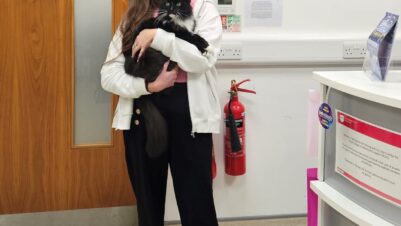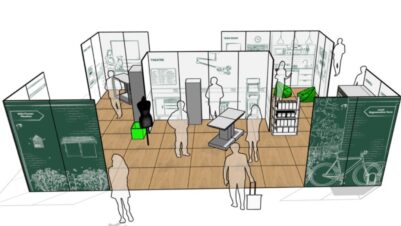Boehringer Ingelheim has now received approval in Great Britain, in addition to the Republic of Ireland and Northern Ireland, for RenuTend, the first product licensed to restore fibre alignment with superficial digital flexor tendon or suspensory ligament fibre disruption in horses. RenuTend has also recently received approval for the Irish market, to improve healing of injuries of tendons and suspensory ligaments in horses.
It takes years of diligent training as well as a trusting relationship between horse and rider to reach their full potential as a team. That’s why a tendon or ligament injury can be devastating for horse owners, riders and trainers. While tendon and ligament injuries are common in all horses, equine athletes at a competitive high level are particularly prone to these types of injuries. For them, the diagnosis may mean many months of treatment and rehabilitation with an unknown outcome, and potential for long term impact on their ability to perform.
RenuTend is administered by intralesional injection and complements Boehringer Ingelheim’s other equine stem cell product Arti-Cell FORTE, which is authorised to treat mild to moderate recurrent lameness associated with non-septic joint inflammation in horses.
“We are thrilled to add RenuTend to our portfolio of stem cell products for horses. The launch of our first stem cell product, Arti-Cell FORTE in 2019, has given vets and owners the opportunity to treat lameness, target cartilage repair and restore joint health, giving owners and horses more active time together” says Dr Clare Turnbull, senior brand manager. “Now we have the opportunity to help horses with tendon and ligament injuries achieve this goal too, representing a brighter future for them and their owners.”
Tendons and ligaments have a poor capacity for healing and the scar tissue that subsequently fills the lesions does not have the same biomechanical properties as the original tissue. This means that tendon and ligament injuries are associated with high re-injury rates and recurrent lameness, which can spell the end of an active career and prove devastating to the owners who care for these horses. By harnessing and optimising the properties of equine mesenchymal stem cells (MSCs) specifically for tendons and ligaments, RenuTend can provide standardised treatment with consistent and proven results. This is because the tenogenically primed MSCs of RenuTend are specifically targeted to reduce scar tissue formation so that horses can return to the intended level of work with a reduced risk of re-injury, allowing the partnership of horse and rider to continue and enabling them to reimagine their future.
Gerard Ensink, head of animal health in the UK and Ireland added: “Boehringer Ingelheim Animal Health delivers a large and innovative portfolio of products and services to prevent and treat diseases with the ultimate goal of improving the health, wellbeing and productivity of animals around the world. As the global leader in Equine Health, RenuTend demonstrates the company’s commitment to bringing innovation to transform the lives of horses and the people who love them.”
RenuTend will be available in September this year. Therefore, any veterinary surgeons, with whom this resonates with, are encouraged to register their interest for RenuTend with their BIAH representative or call 01344746960 so we can ensure they are the first to know as soon as updates and further product information becomes available.






